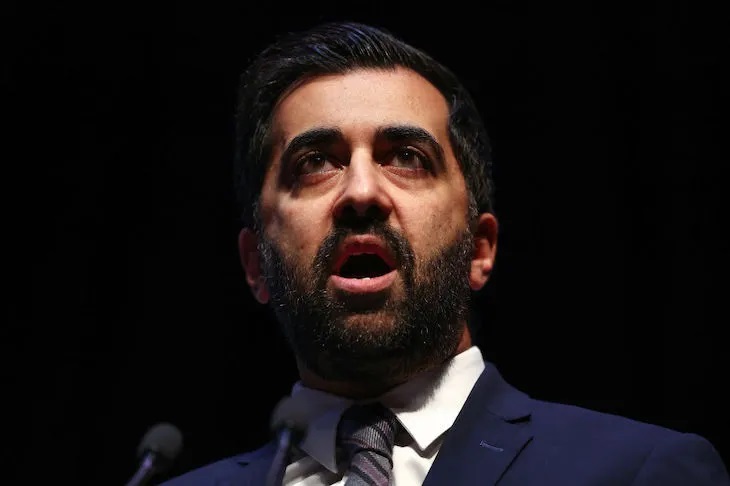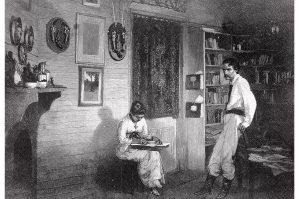When will the Scottish government get on with the day job? Hot on the heels of his controversial Hate Crime Act, First Minister Humza Yousaf has now promised a misogyny law that will apparently protect members of both sexes. Yousaf insisted that “anyone affected” by misogyny would be covered, whatever their biological sex. This includes, of course, transgender women. You wonder if their government is so detached from reality that it does not know the difference between men and women, or they are so deeply in the pockets of an activist lobby that they pretend not to know. Either way, it is bad for women and bad for Scotland.
Once again, J.K. Rowling spoke for the women that Scottish ministers have ignored. Reacting to Yousaf’s remarks, the author wrote: “Humza Yousaf makes his absolute contempt for women and their rights clear. Women were excluded from his nonsensical hate crime law, now he introduces a ‘misogyny law’ designed to also protect men.”
Yousaf’s problem is that he simply does not know what he is talking about
The author went on to cite the example of a transgender activist in the Scottish Greens who was suspended from the role of Rainbow Greens co-convener after a series of tweets, including one labeling feminists “fascists.”
“Trans-identified men have sent violent threats to women but the likes of Beth Douglas now receive double protection from Yousaf: for his so-called gender identity, and for also being, in the eyes of the Scottish government, a woman,” Rowling added.
Many other women in Scotland are likely to be rather less measured in their response. The female sex has been expected to give way every time to members of the male sex who have claimed a transgender identity. Women have had enough, quite understandably.
Yousaf’s problem, I think, is that he simply does not know what he is talking about when he opens his mouth on transgender issues. His ignorance was plain to see in an interview with the BBC, in which he said:
“When a trans woman is walking down the street and a threat of rape is made against them, the man making the threat doesn’t know if they are a trans woman or a cis woman. They will make that threat because the perception of that person [is] as a woman.”
Let’s try and ignore that c-word for the moment: Yousaf is pointing out that the law is concerned with the intent of the perpetrator. That is correct; the same principle also runs through the Equality Act. If someone is perceived to have a protected characteristic then they are protected if they face discrimination as a result. For example, if someone thinks that I am a woman and treats me less favorably as a result then I am covered under the protected characteristic of sex.
I don’t think many people would have a problem with that. Kemi Badenoch — who appears to understand what Yousaf does not — once told the House of Commons that “the Equality Act is a shield, not a sword.”
But people take issue when laws passed to defend the vulnerable are instead turned into weapons of attack by the powerful. That is what the LGBTQ+ lobby has done, and it is what too many politicians have failed to appreciate. It is easy for a man to identify as transgender; it is rather more difficult for him to identify out of his male privilege. He retains it so long as he can be clocked as being male.
Those people — including me — should not be protected by misogyny laws if we are not perceived to be women. It’s as simple as that. But if that’s too difficult for Yousaf then maybe he should focus his time and energy on issues that the people of Scotland expect him to understand — things like health, education, jobs and public services.
Good laws are either respected or feared — depending on your perspective. Perhaps someone should inform the Scottish government. Some of their recent legislation has instead provoked outrage and ridicule. This misogyny deserves a similar reaction.
This article was originally published on The Spectator’s UK website.


























Leave a Reply